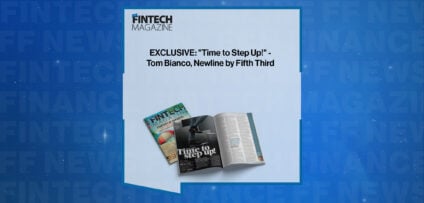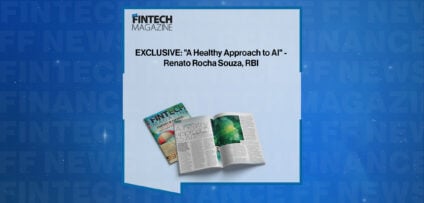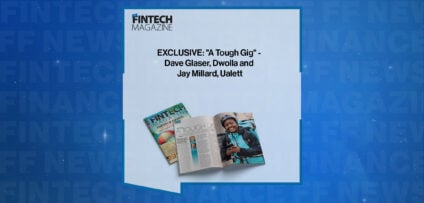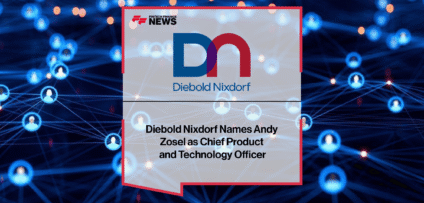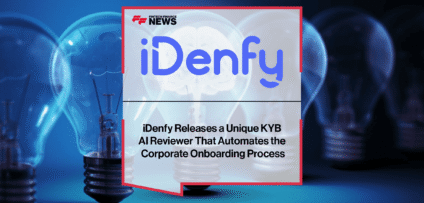Breaking News

EXCLUSIVE: “Claiming the high ground” – Rana Bhattacharya, Cynergy Bank in ‘The Fintech Magazine’
Cynergy Bank has been clear that any investment in digital technology is for one purpose only: to free up staff to make a difference to SMEs. Rana Bhattacharya tells us about its journey
When Cynergy Bank opened its new HQ on Ludgate Hill – the highest point in the City of London, overlooking St Paul’s Cathedral – and immediately began blitzing more than 200 billboards in St Paul’s Underground station with its adverts for small business banking, there was a sense that something subversive was happening.London’s Square Mile is famous, after all, for its global financial institutions and their corporate mega deals.
A typical deal for Cynergy was the £2.25million loan it had announced the month before for Sheyenne Ltd, a firm that runs two self-storage facilities in Devon. It was no doubt transformative for the company, but it would never have made the City pages of The London Evening Standard.It’s the country’s 5.6 million smaller firms, though, who make up 99 per cent of the UK business population and create half of private sector turnover, according to Federation of Small Businesses data.
And they rarely get the recognition they deserve, much less the banking services.So, when Cynergy planted its flag on Ludgate Hill in December, it was a statement of intent: to put the interests of the economy’s unsung heroes on the map as well as give them access to the same focussed and expert level of financial services as the corporates enjoy.
Since its creation following a £103million consortium takeover of Bank of Cyprus’ UK operations in 2018, Cynergy has undergone a programme of modernisation to keep pace with digital change. It struck tech partnerships with firms such as Google Cloud to ensure it could compete on speed and user experience with online-only neobanks. But, importantly, the technology was ever only deployed in the service of the bank’s most important assets – that is, its customer relationship managers.
The bank’s chief digital and information officer Rana Bhattacharya says: “We aim to be the ‘human digital bank’, so we are data-driven, efficient, but with relationship managers that our clients can call upon.”
It wanted to completely reverse the ratio of time they spent in front of customers and time spent managing internal systems at the bank – from 20:80 to 80:20 – and it’s well on the way to achieving it with the help of AI and other technology.
And it hopes that will persuade more SMEs to join it, because a vanishingly small number currently switch accounts from the high street giants. In fact, an industry survey in January revealed that SME switching was at an all-time low since the UK’s Current Account Switch Service began in 2013 – only used by 0.5 per cent of firms a year.
That seems to scream in the face of evidence that, of the £275billion SME cash held on deposit by British banks, £150billion was earning no interest at all in 2023, while the rest accrued £7.5billion less than big firms might have enjoyed. That was attributed to a lack of skills and confidence to negotiate among SMEs or just a lack of time to shop around.
Cynergy, meanwhile, is consistently in the top three for offering the highest variable-rate, easy-access business saver accounts, and for paying interest on deposits of up to £25,000 held in its £25-a-month business current account.The bank is focussed on property finance, SME business finance and private banking, but its headline-grabbing best-buy savings products have won it fans among savvy consumers, too.
In the last 12 months, it’s picked up a string of awards, including Best Online Savings Provider at the Personal Finance Awards, Best SME Specialist Banking & Business Services Provider at the SME New UK Enterprise Awards, and Best Variable Rate ISA Provider for the fifth year running at the Moneynet.co.uk awards.Last summer, Cynergy’s growth plans were boosted when it secured £20million of Tier 2 capital funding from British Business Investments, a subsidiary of the British Business Bank. Hailed as a milestone investment at the time by chief executive Nick Fahy, Cynergy plans to use it to provide at least £250million of additional lending for its SME and property entrepreneur customers.
“These tools will remove the minutiae of laborious administrative activities so we can focus on our customers”
“We don’t do the typical high street lending,” explains Bhattacharya. “We look at more complex lending, and we aim to turn that around very quickly.
“Importantly, we genuinely care about our customers, and we don’t necessarily use a computer to decide whether we’re going to take a deal or not. But AI is certainly a productivity tool for us and it can be applied to a multitude of tasks for a bank.”
Those tasks aren’t unique to the banking industry, but they can nevertheless improve a bank’s internal processes, so staff can get on with providing exemplary customer service.
“For instance, as part of improving staff productivity, we have used AI for our human resources team to free HR colleagues from answering repetitive questions from staff so they can do higher-value work,” says Bhattacharya.“Questions such as ‘how many holidays do I have?’ are answered in policy documents, so we have worked with Google to ingest such information and provide a natural language interface, so now, if one of our colleagues has a question, they first go to that interface, and if they don’t get the response they need, they can ask an HR colleague.
”Cynergy’s digital transformation has included developing a loosely coupled IT architecture so it can now plug-and-play partners’ products. “What we ask ourselves is ‘how do we make our colleagues more productive?’,” says Bhattacharya.
And while that absolutely could mean using AI in guiding them on a lending decision, ‘we’re conscious that using it brings both positives and negatives’, he adds. “From a regulatory and compliance perspective, automation can be employed to provide guidance to both customers and colleagues within the bank, but the governance and control must sit with colleagues who make the key decisions.
“And whatever a bank does has to be explainable, and a concern I have with continuous learning models is that they may give answer ‘A’ on one day, and give answer ‘B’ to the same question the next because it has subsequently learned. How do you explain or navigate that?”
Bhattacharya says its partnership with Google has proved crucial.
He says: “A lot of organisations will choose a provider that can provide frameworks and models that work as accelerators. With Google, we also have access to people who know the frameworks and tools that can help us on our journey.
“Ultimately, we’re looking at it from a perspective of ‘are there deliverables that we could automatically create, where we have the data, we have the inputs, that take effort away from colleagues?’.”
In the banking space, AI has an obvious and ever-increasing role in customer contact centre assistance, as well as in due diligence work, reconciliation and in spotting fraud.
“However, the more heavily you use AI in your business, you might find anomalies that could significantly impact your business,” observes Bhattacharya. “So, firms need to enforce a regime of regular testing and surveillance to ensure what they are using is still fit for purpose, as they commissioned it.
“Let’s not forget, AI is processing data, and within Europe, we’ve got some of the strongest legislation, so an organisation really needs to understand where its data is going, how it’s being used, who owns it, who owns the outputs of the insights that are coming from an AI.“Nevertheless, in our drive to be the human digital bank, AI will be used to ensure we are data-driven and efficient. These tools will remove the minutiae of laborious administrative activities so we can focus on our customers.”
This article was published in The Fintech Magazine Issue 31, Page 69-70
People In This Post
Companies In This Post
- Standard Chartered Appointed as Digital Asset Custodian for TP ICAP’s Fusion Digital Assets Read more
- Vivox AI Raises £1.3m to Scale Regulator-ready Atomic AI Agents for Financial Crime Compliance Read more
- Diebold Nixdorf Names Andy Zosel as Chief Product and Technology Officer Read more
- YouLend Secures Multi-Year Forward-Flow Facility from Värde Partners to Accelerate U.S. Growth Read more
- Addepar Unveils Addison, a Native AI Experience Built to Deliver Actionable Intelligence Across Investment Workflows Read more






